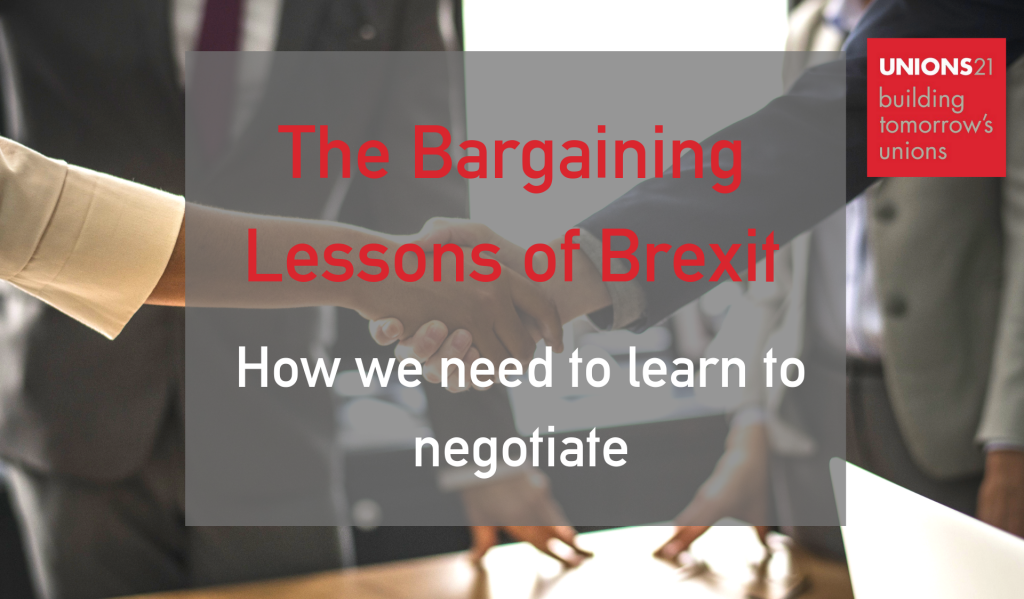By Dr. Richard Saundry, Professor in HRM & Employment Relations, University of Plymouth | 4 min
As each Tory leadership candidate unveils their Brexit plan in a bid to win the party’s backing, we’ll be listening closely to their promises around workers’ rights.
Ever since the referendum was announced way back in June 2016, the impact on workers’ rights has been a focus of leave and remain arguments. Given the prominence of the issue, you’d be forgiven for thinking that the UK was set to lose a framework of collective voice and effective negotiation which has served the government, employers and workers and their unions well over the years.
In fact, as we look at the dismal failure of the government to negotiate an acceptable exit from the EU, we realise that the UK’s lack of collective voice and bargaining skills have contributed to the current stalemate and polarisation of views. Negotiation is about winner takes all, not how we can best meet the needs of everyone round the table.
So far, the government has demonstrated some willingness to protect workers’ rights. After her election as Tory leader, May pledged to overhaul corporate governance and appoint employee representatives to company boards, an extension of workers’ rights which would have brought the UK into line with EU members like France and Germany. She did, however, backtrack in the face of employer opposition, saying her proposal was not mandatory.
And, in the early stages of Brexit talks, David Davis denied that leaving the EU would dilute of employment protection saying “the great British industrial working classes voted overwhelmingly for Brexit. I am not at all attracted by the idea of rewarding them by cutting their rights.”
However, as we look over the main contenders in the leadership race, we find at least three candidates with gilt-edged deregulatory credentials – with Jeremy Hunt, Sajid Javid and Michael Gove all admirers of the ‘Singapore model’ where low tax, low regulation and low spend comes with no minimum wage, no equal pay and low annual leave.
So with workers’ rights still up front and centre, how can unions work more effectively with employers for the benefit of the country post-Brexit? It’s time to rethink our approach to collective bargaining, to improve our negotiating know-how and to learn lessons from Europe.
Incredibly, after the referendum, it was revealed the British civil service had no trade negotiators, compared to the European Commission who could call on 600 experts. This may be a function of the UK’s reliance on European structures of regulation, but it also reflects the erosion of collective employment relations.
In the UK, just over a quarter of workers are covered by collective agreements, compared to around 60% across the EU and as high as 80% in Denmark, 84% in the Netherlands and 98% in France. Not only does the UK government have little understanding of employment relations but few employers have any experience of the complexities of large-scale collective bargaining. For trade unions, the focus in the last two decades has switched to defending individual members with an emphasis on the enforcement of rights.
When we do negotiate, we tend to bargain distributively, trying to get the best deal or the biggest slice of the pie. We often adopt adversarial approaches and this is reflected in our Courts, Employment Tribunals and often in the way internal disciplinary and grievance procedures are set up.
This stands in stark contrast to most of the rest of Europe, which favours more collaborative approaches, focusing on common and mutual interests. For example, for Michel Barnier, Brexit was not a battle to be won or lost but a difficult problem to be solved, a conflict to be resolved. This idea of social partnership runs through the European Union but which has little place in the political economy of the UK. In short the UK and the EU have been speaking different bargaining languages.
This is a critical issue for trade unions. Should the UK leave the European Union under the stewardship of a Conservative government it is likely that existing protections will come under attack.
To defend the interests of members, unions will have to extend their existing attempts to organise and will need to ensure that existing and new workplace representatives have the skills needed to negotiate the best deal and to build high-trust relationships with employers that facilitate effective conflict resolution. Similarly, in the event of a Labour government committed to the extension of collective bargaining, unions will need the capacity and capability to take maximum advantage of such a seismic shift in employment relations. Are our unions ready and willing to take this opportunity?



